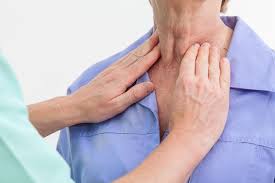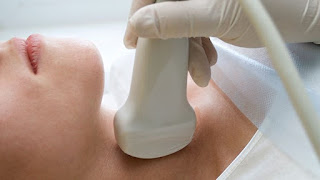Overactive Thyroid Produces Too Much Thyroxine Hormone
When your thyroid gland produces too much of the hormone thyroxine hyperthyroidism (overactive thyroid) occurs. The condition known as hyperthyroidism can accelerate your body's metabolism, causing a rapid or irregular heartbeat and unintentional weight loss. Hyperthyroidism causes the thyroid gland to be overactive which leads to excessive amounts of thyroid hormone. Located in the front of your neck, the thyroid gland is an organ that releases hormones that control your metabolism (the way your body uses energy). These hormones also control your breathing, nervous system, heart rate, body temperature, weight, and many other functions in the body.
Overactive Thyroid Symptoms
You may experience nervousness, anxiety, rapid heartbeat, hand tremor, excessive sweating, weight loss, and sleep problems, among other symptoms, when the thyroid gland is overactive. It can be difficult for your doctor to diagnose hyperthyroidism as it can mimic other health problems. Hyperthyroidism can also cause a wide variety of signs and symptoms, including an enlarged thyroid gland (goiter), which may appear as a swelling at the base of your neck, fatigue, muscle weakness, difficulty sleeping, skin thinning and fine, brittle hair.Other signs of hyperthyroidism may include rapid heartbeat (tachycardia) — commonly more than 100 beats a minute, irregular heartbeat (arrhythmia), and pounding of your heart (palpitations). You might also experience unintentional weight loss, even when your appetite and food intake stay the same or increase, increased appetite, sweating, increased sensitivity to heat and changes in menstrual patterns. Hyperthyroidism might also produce changes in bowel patterns, especially more frequent bowel movements, as well as nervousness, anxiety and irritability.
If you have symptoms of an overactive thyroid contact your doctor who will check for an enlarged thyroid gland, rapid pulse, moist skin, eye changes, and a slight tremor in your fingers or hand. Your doctor also will do a blood test to measure the amount of thyroid hormone in your blood which confirms the diagnosis. Your medical practioner may do a thyroid scan to help find the cause of your hyperthyroidism. It is possible that if your entire thyroid is affected you could have Graves’ disease, or the doctor will look for thyroid nodules or an inflammation.
Additionally your doctor may do a radioactive iodine uptake test which measures your thyroid’s ability to take up iodine. Your thyroid gland may be producing too much hormone if a high uptake of iodine is indicated. Such an result could indicate Graves’ disease or a hyperfunctioning thyroid nodule, while a low uptake of iodine indicates thyroiditis as the cause.
Treating an Overactive Thyroid
The best of several treatments for hyperthyroidism depends on your age, health, cause, and how severe your condition is. Your doctor's goal is to control your thyroid levels and make them normal as doing this relieves symptoms and prevents future health problems. One option is radioactive iodine therapy to damage the cells that make thyroid hormones. It can also be treated with anti-thyroid medications that interfere with the production of thyroid hormones. In rare cases in which women do not respond to or have side effects from these therapies, surgery to remove the thyroid (either one part of the entire gland) may be necessary.Your doctor may also prescribe beta-blockers to block the effects of thyroid hormones on your body as beta-blockers help slow down a rapid heart rate and reduce hand tremors. The severity and underlying cause of your symptoms, your age, whether you are pregnant, other conditions you may have, and the potential side effects of the medication can all be factors in your choice of treatment for hyperthyroidism.
Dr. Carly Carrion Olmeda is a Board Certified Endocrinologist with Fellowship training in Diabetes and Metabolism. He treats a wide range of conditions.
OFMC Plaza
2135 SW 19th Avenue
Suite 103
Ocala, FL 34471
Phone: 352-237-4133
Fax: 352-873-4581
E-mail: info@ocalafmc.com





